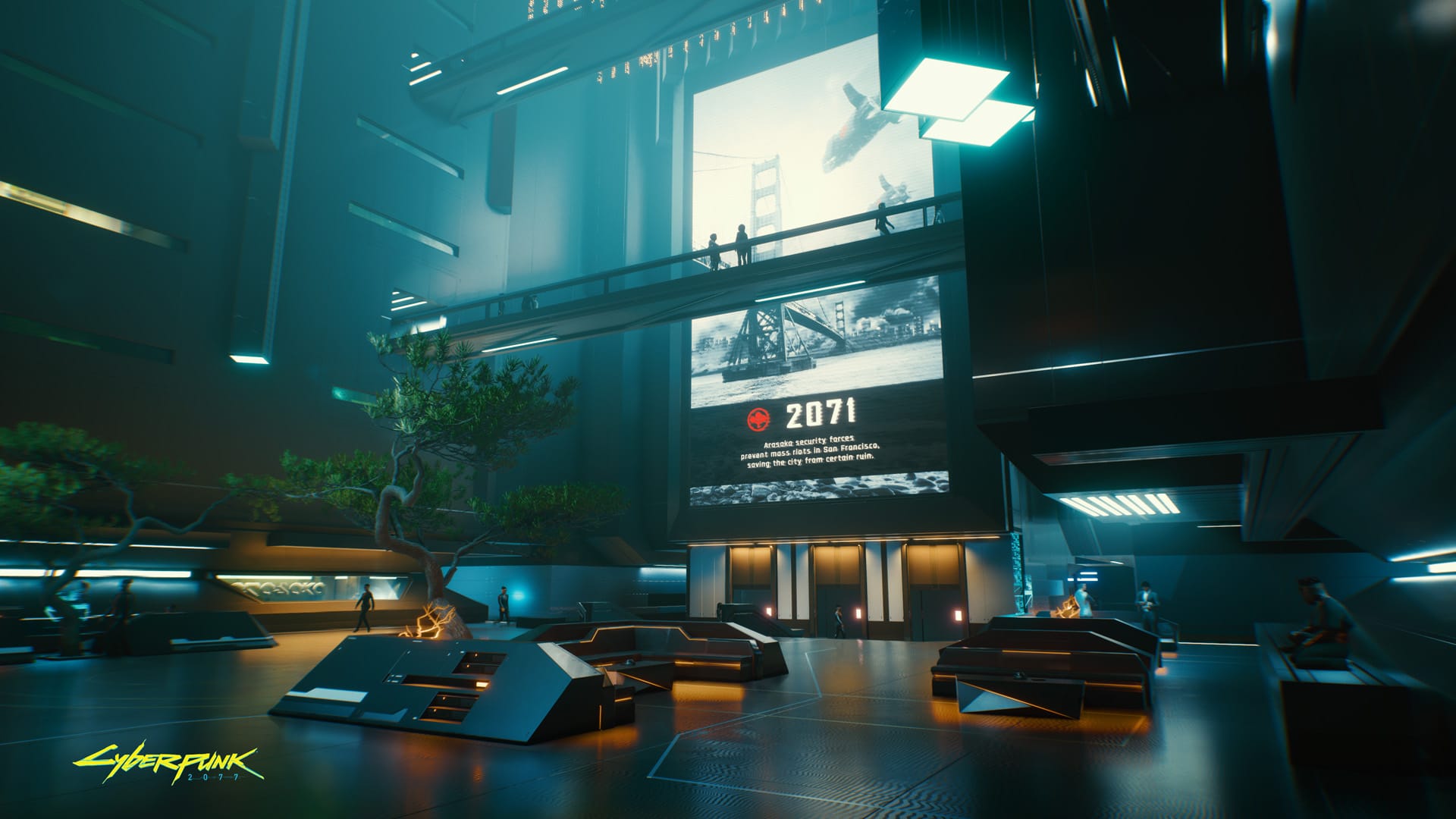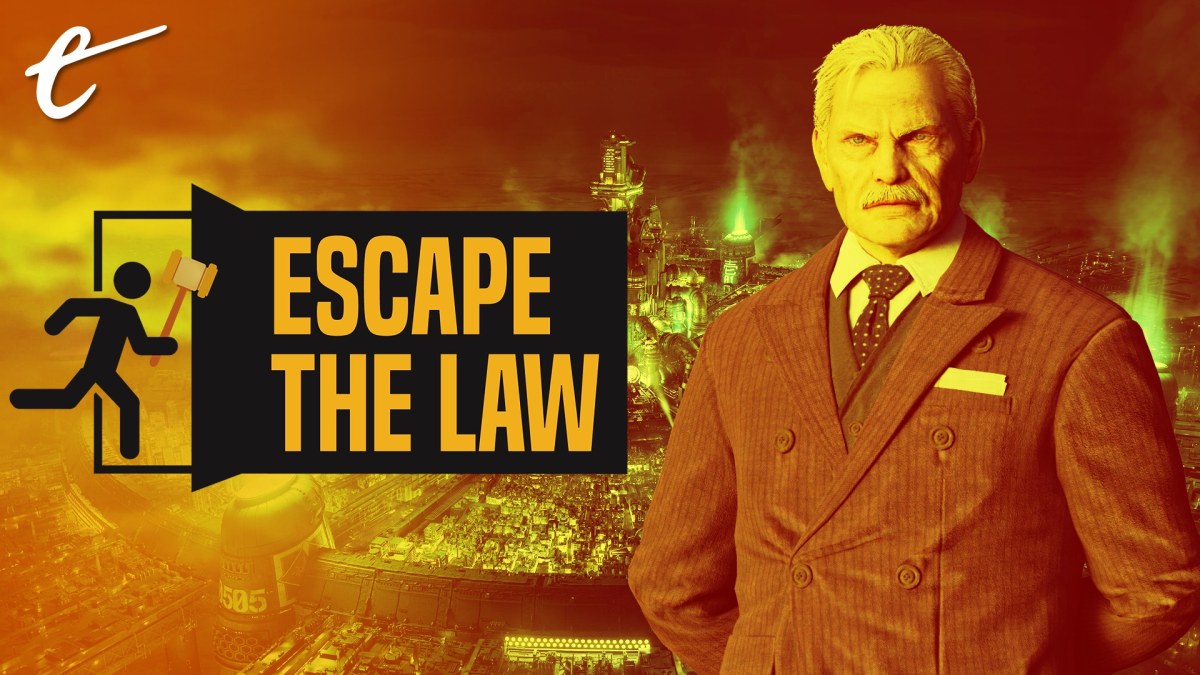Thirty-six states are suing Google for alleged antitrust violations relating to its soon-to-be-implemented policy requiring app developers on the Google Play Store to pay Google a 30% commission on all of their sales. President Biden signed a sweeping executive order regarding antitrust law and competition. And the Amazon-MGM merger is now under scrutiny from regulators. When it rains, it pours, so we are going to discuss in basic how antitrust law works, why corporations are more complicated than the cartoonishly evil ones seen in video games, and how this understanding applies to the big news stories of the week.
The Argument for and Against Antitrust Laws
Video game enthusiasts are no stranger to big business. Indeed, “evil corporation” is one of the most prominent tropes in video games, like the Shinra Corporation from Final Fantasy VII, Abstergo Industries from Assassin’s Creed, and Arasaka from Cyberpunk 2077. While the specifics are different, real-world antitrust law is motivated by the same concerns seen in those video games — including a worry that corporations could become so profitable and influential that they have the ability to shut down competition and harm consumers or the world with impunity.
In a previous article, I explained how large corporations can wield their power for good or for evil. The goal of antitrust law is to prevent abuses of power by keeping companies in a depowered state and by taking powers away from corporations who wield it unfairly. Those who support antitrust regulations argue that people and companies should exist on a level playing field, that it is too risky to allow people and companies to even be in a position to abuse power, and that we ought to apply significant scrutiny to the powerful, because tremendous power creates a tremendous risk of abuse.

On the other hand, people who oppose antitrust regulations argue that people and business organizations have a right to improve themselves, to grow, and to use their resources as they see fit. They argue that the law should only intervene when a person or company uses their power in a way that causes active harm. They also argue that there are benefits to having concentrated wells of power. Companies like Amazon, Google, and Facebook are able to make contributions that wouldn’t be possible but for their size and power.
This includes, for example, a COVID-19 Exposure Notifications app that tracks everyone’s location and cross-references those locations to notify people who have been close to infected individuals. This also includes the ability to access pretty much any information at any time (and to access a little bit of everything all of the time).
But Corporations Are More Complicated Than Shinra
However, unlike with supervillains or generically evil video game corporations, where it’s almost always clear when someone abuses their power — murder, intimidation, destruction of property, etc. — abuses of corporate power are not so clear-cut. An antitrust violation takes place when a company causes “harm to competition,” but it’s not always easy to determine when harm to competition has taken place or even to agree on what “harm to competition” means. The debate over antitrust law is often over whether such abuse has actually taken place.
Additionally, unlike in video games or comics, in the real world, there is a tremendous concentration of organizational power located in the government. Those in favor of strict antitrust regulations would argue that many of the benefits one might associate with big business aren’t unique advantages, since those benefits can and should be provided by the government. One could point to the COVID-19 Exposure Notification app or to the USPS as examples.

Understanding Biden’s Executive Order Regarding Antitrust Law
Of all the antitrust developments this week, President Biden’s executive order is easily the most significant. It is sweeping and will lead to the adoption of a wide range of new rules. For our purposes, the items in the executive order fall into three categories: video-game relevant, no-brainers, and controversy.
How the Executive Order Impacts Gaming
There are two policy changes in the executive order directly relevant to gamers and game developers. First, the order will lead to the creation of rules that limit non-compete agreements in employment contracts and that will prevent competing employers from collaborating to suppress wages or reduce benefits. In the past, I’ve argued that it would be hard for legal reforms to make a difference in the video game labor market because “cultural change must start from within the gaming industry.” While I stand by that position, it is worth noting that cultural change can be stymied by an unfair labor market.
Generally speaking, a company that treats its employees badly will lose out to companies that treat their employees well, thus providing a profit-based incentive for developers to pay better and foster a healthy work environment. But if all of the employers in a labor market agree to provide the same shitty benefits, then normal competition won’t correct the problem. The same is true if contracts have non-compete agreements that prevent developers from switching to a better employer. At this point, it’s unclear whether and to what extent the video game industry suffers from these problems, but if they do, it would certainly help explain why it is taking so long for cultural change to take root. If that’s true, then this executive order — and the rules that flow from it — may be exactly what developers need to move things forward.
Verdict: One of Superman’s first villains was an employer who adopted poor working conditions. If Superman disapproves, I disapprove.

The second aspect of Biden’s executive order that is relevant to gamers is the provision directing the FCC (Federal Communications Commission) to restore net neutrality. In brief, net neutrality prevents internet service providers from providing preferential service to particular websites or for particular web uses. In 2017, the FCC eliminated net neutrality requirements. Biden’s order rolls them back. Suffice to say, the net neutrality debate has been well-trod, but restoring it is good news for gamers.
Verdict: Only companies like Shinra would oppose net neutrality.
The No-Brainers
The no-brainers are rules that should have been implemented a long time ago and that any reasonable person would support. The items in this category seek to end practices that exemplify corporate greed. For example, the order will lead to rules requiring airlines to clearly disclose baggage fees and cancellation penalties and to offer a refund for late baggage or broken Wi-Fi. Likewise, the order will reduce drug prices by making it easier to import drugs from Canada and preventing drug companies from colluding to delay the launch of cheap generic drugs. These kinds of practices are not motivated by any market demands or competitive pressure. No one will miss them.
Verdict: The executive order is Superman to the airlines’ LexCorp.

The Controversies
This final category relates to rules that implicate especially complex questions that can’t really be analyzed or understood in just a few paragraphs. To be fair, the executive order acknowledges this complexity — the order does not actually impose any rules itself, but instead directs the FTC to consider changing its rules and guidelines. The FTC now has the task of considering whether and how to implement Biden’s directives. This includes potential rules that would change how the FTC evaluates mergers among hospitals and how the FTC reviews acquisitions of startups by larger technology companies.
For most or all of these categories, the devil is in the details. For example, it is almost certainly true that “Big Tech” companies try to kill competitors in the crib by acquiring startups before they have a chance to grow. But it’s also true that many startups form for the sole purpose of being acquired, such that preventing or limiting those purchases would result in an overall reduction in innovation.
Verdict: We need more time to evaluate these rules.
This Week’s Other Developments
Earlier this week, 36 states filed an antitrust suit against Google in connection with the Google Play Store arguing that Google’s fees are too high and that the Play Store is too entrenched in the Android ecosystem. Their argument is essentially identical to the one made by Epic Games against the Apple Store. As I explained a few weeks ago, I think Apple has a stronger argument in that case, but it could easily go either way. What remains unclear is why the states decided to sue Google and not Apple, especially since Google’s practices are much less restrictive than those of Apple.
Verdict: Google is Black Cat to Apple’s Catwoman. Neither is really a villain, and it’s strange that the government would go after one but not the other.

Lastly, the Amazon-MGM merger faces scrutiny from the FTC. On one hand, this isn’t surprising. The new chairperson of the FTC is Lina Khan, who rose to prominence by writing a paper arguing that Amazon’s low pricing and expansive services run afoul of the antitrust laws. In fact, her works were so critical that they led Amazon to file a request seeking to have her recused from antitrust investigations based on a purported appearance of bias. All of this is to say — it’s not terribly surprising that Amazon is now under an antitrust microscope.
On the substance, my thoughts on the merger largely mirror the thoughts I had with respect to the Disney-Fox deal. In short, the merger will make Amazon even bigger than it is now, but there is still plenty of competition in the media and streaming markets. So I don’t think the additional scrutiny will actually prevent the deal from going through.
Verdict: I can’t wait for the James Bond-Invincible crossover.
The Week of Antitrust
Well, there you have it, a breakdown of this week’s many antitrust events. The executive order targeting antitrust issues from President Biden just might make him the Cloud Strife to Amazon or Google’s Shinra, but — as we have explained here — the issues are a little more complicated than that.






Published: Jul 11, 2021 02:00 pm